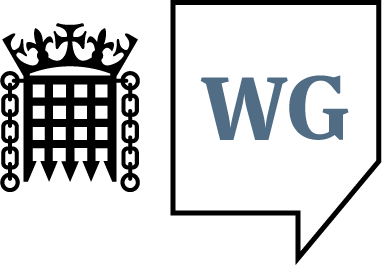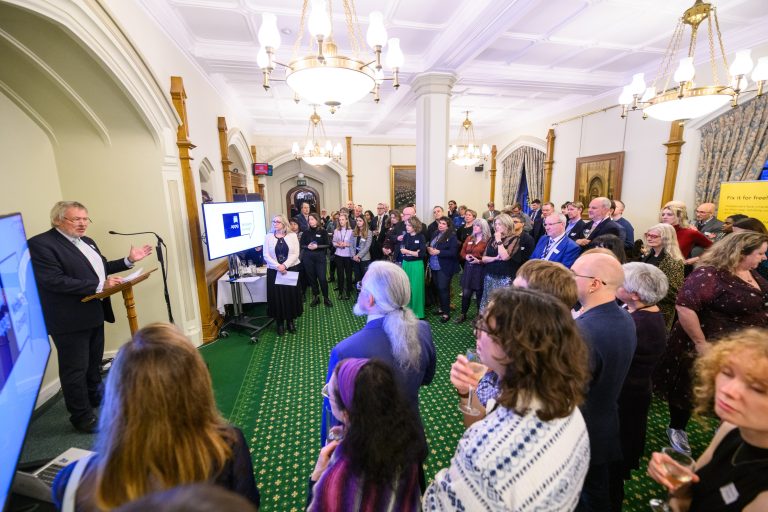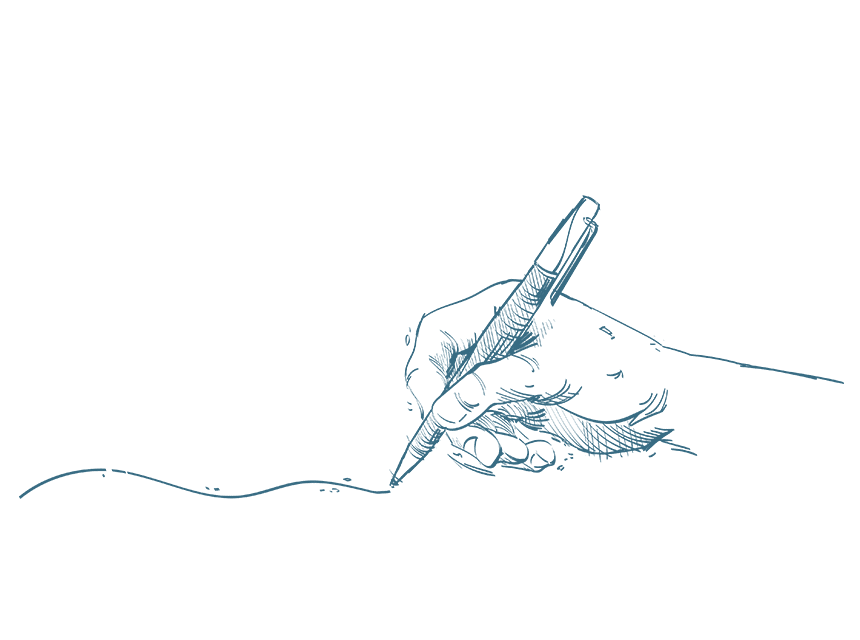The Winter Reception, hosted by All Party Parliamentary Writers Group (APWG) Chair Giles Watling MP, provided an opportunity for MPs and Peers to learn more about the issues facing freelance creatives.
Giles opened the event by thanking creatives and underlining his support: “This is all about putting what creatives do in front of Parliamentarians and making sure that our sector is well looked after. Nothing happens in the world of the arts without somebody having the courage to put pen to paper. Thank you for doing what you do. I will support you as best I can.”
He reaffirmed his support for the proposal for a Freelancer Commissioner to be appointed to Government to represent the interests of freelance creatives: “During the pandemic, 3.1 million freelancers fell through the gap and missed out on support. There are other things that workers take for granted, such as maternity and paternity leave, holidays and sick pay. The creation of a Freelancer Commissioner would be an excellent move and a step forward for creatives and especially writers.”
He then introduced Chair of the Authors’ Licensing and Collecting Society (ALCS), Barbara Hayes. Brarbara began by paying tribute to Janet Anderson, a former Chair of the APWG and champion of authors, who sadly passed away in February.
Barbara announced that ALCS has commissioned the CREATe Centre at the University of Glasgow to conduct a survey examining freelance journalists’ earnings, in order to better understand the challenges they face. The full report will be available in 2024 but Barbara shared some preliminary findings:
“Earnings from freelance journalism have stagnated over the past five years with professional median earnings now standing at around £19k per annum.”
“A major secondary use is the scraping of news stories by platforms like Google who offer them to users, securing significant advertising revenues in the process. The added value gained by the platforms associated with this type of activity is estimated to be in the region of £1 billion per year. And less than 10% of the freelance journalists surveyed had ever received income from this type of re-use. This is something that we want to see change.”
Barbara expressed hope that the proposed Digital Markets Bill can help address this: “In the UK, we hope to see the Digital Markets Bill (Digital Markets, Competition and Consumers Bill) enacted which would empower the Digital Markets Unit to support efforts to secure a fair share, the right share, of this money for journalists.
Barbara then introduced freelance journalist, Marie Le Conte, to provide first-hand experience of life as a freelancer.
Marie spoke about the difficult conditions for freelance journalists: “Newspapers and magazines are paying less and less, and as you may have noticed, everything is costing more and more. I managed to become a journalist and for quite a few years I made a point of giving talks at universities to tell journalism students that they should give it a shot if that’s what they wanted to do. Increasingly, I’m not sure I can give that talk anymore.”
She then explained journalism’s heavy reliance on freelancers: “News rooms rely increasingly on freelancers. They’ve been gutted from wave after wave of redundancies, and what that means is they need us to fill the pages of their publications. At the same time, they don’t pay us enough, they don’t pay us on time”
Finally, she outlined the importance of the profession and the consequences of failing to protect freelance journalists: “Journalism is crucial. Disinformation and misinformation are massive issues, especially on the internet. If space is not filled with relevant and reliable information written by professional journalists, it will be filled by other actors, who are often acting in bad faith.”




